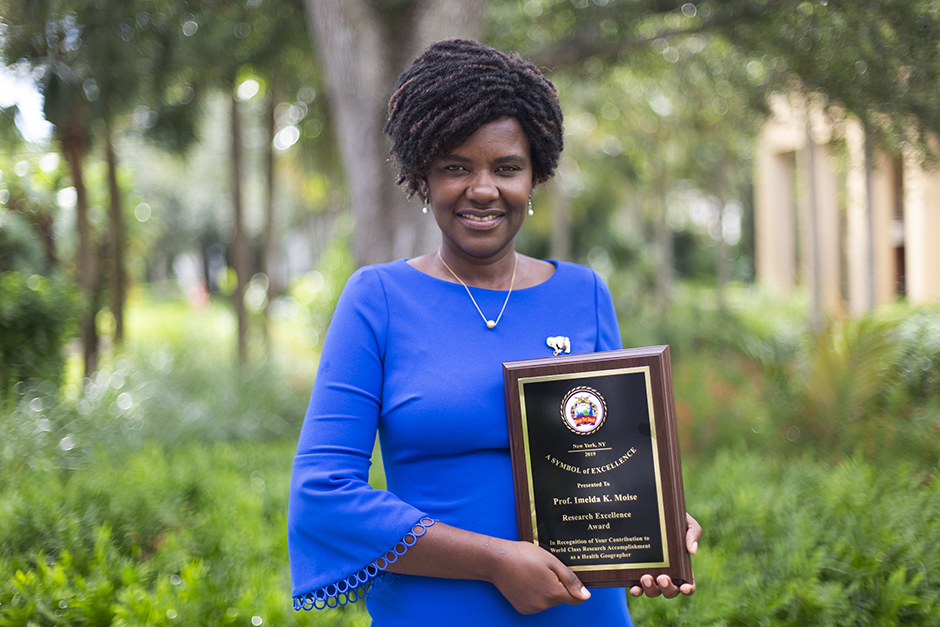Created to pair highly skilled experts in the U.S. with institutions around the globe, the Fulbright Specialist Program is all about partnerships, collaboration, and research-driven initiatives aimed to strengthen linkages and find solutions to real-world problems.
Dr. Imelda Moise, an assistant professor in the Department of Geography and Regional Studies, was recently chosen to participate in this prestigious program as an expert in health geography, and she’s eager to transfer her skills and knowledge to help institutions around the world develop and integrate geospatial approaches in their academic curricula, while creating opportunities for collaborative health disparities research.
Her first project allows her to work alongside researchers and administrators at the Birla Institute of Technology (BIT) in India. During her time there, she will develop academic/training curricula and materials in GIS (Geographic Information Systems) applications for health that include spatiotemporal modeling of disease occurrence and spread, as well as lecturing at the graduate and undergraduate level and conducting a workshop in GIS health applications.
“There are many health issues where the institute is located,” said Moise. “I will meet with some of the villagers, doctors, and health administrators and together we will develop a memorandum of understanding with my host institution to share and analyze data for decision-making solutions.”
The Fulbright Specialist Program granted Moise a tenured period of three years to work with institutions around the world. These short-term collaborations will allow Moise the opportunity to participate in other exciting research initiatives with different host institutions in over 150 countries.
Moise’s academic work focuses on families and communities at risk in Illinois, the Southeast United States, and sub-Saharan Africa. She has received many awards that support her research, including a grant from the Robert Wood Johnson Foundation to study adolescent alcohol abuse and trauma, a National Geographic grant to study land use, microclimate, and water quality nexus in Sierra Leone, and a multi-year grant from the Centers for Disease Control for vector-borne diseases in South Florida. Her research has been published in high-profile journals such as Emerging Infectious Diseases, Trends in Parasitology, Scientific Reports, and PLoS Neglected Tropical Diseases.
“I am excited to start this opportunity with the Fulbright Specialist Program because it is an extension of my role as a teacher and scholar here at UM, and it also relates to one of the College of Arts and Sciences’ Strategic Plan themes, “Reaching beyond Coral Gables,” said Moise. “For example, there are a lot of water and sanitation issues in India that are linked to poverty, which is also escalating,” Moise said. “I will get to work on projects that address some of these big issues. It is motivating and inspiring to be able to use my expertise to help improve population health outcomes and well-being for vulnerable communities.”
Moise is also the proud recipient of a community-based award from the City of Yonkers in New York known as the Mwape Peer Award for Research Excellence. The award recognizes the research of academics who are dedicated to advancing the health and wellness of people living in the African continent. The award was established in 2010 by Ruth and James Mwape of New Jersey. Their nonprofit initiative provides a platform to recognize individuals who have made a difference through their creativity and research. Moise accepted her award at a formal ceremony in Yonkers, NY, this past October.
“This community-based award has motivated me to continue working with communities and organizations and to help find solutions that develop interventions addressing some of the formidable health-related challenges of the 21st century, such as those stemming from human interactions with the built environment, unhealthy lifestyles, movement of people, and natural disasters,” said Moise. “I am beyond grateful and humbled by this nomination.”

